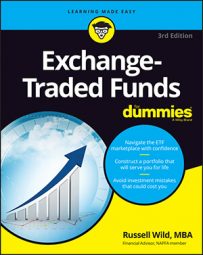On May 6, 2010, the stock market went kablooey. With no real reason to explain it, the stock market suddenly plunged. Some exchange-traded funds (ETFs) had fallen in value to mere pennies on the dollar. It seemed like the start of another Great Depression.
Ooops.
The “flash crash” of 2010 was just a big mistake — a few computer glitches, essentially — and within 10 minutes, the market nearly recovered. Trades made in those 10 minutes were corrected, and life went on as normal. Sort of.
For months that followed, market authorities scratched their collective chins, trying to figure out what exactly went wrong and how to make sure that it didn’t happen again. They’ve since, they assure us, instituted circuit breakers so that the same kind of swift movement again will result in the temporary shutting down of the market, allowing troublesome computer glitches to be addressed.
So now you’re safe. Maybe.
Still, if you feel nervous about another “flash crash,” perhaps one in which trades won’t be corrected, exercise caution when trading your ETF holdings. A “stop order” tells your broker to sell your ETF if it drops below a certain price — say, for example, below $10 a share. In theory, that protects you from a market crash. But in reality, it may actually subject you to a crash.
If, say, the price of your ETF shares drops precipitously enough, as prices did on May 6, 2010, your order to sell if the price dips below $10 may kick in at 10 cents a share.
Solution: Instead of a “stop order” use a “stop-limit” order, which tells the broker to sell your ETF if the price drops below, say, $10 a share, but not to sell if you can’t get, say, at least $9 a share.
Or — perhaps a better solution — don’t use stop orders at all. Rather, be prepared for some bumps in the road, and only invest in the stock market money that you or your family won’t need for a good time to come.

